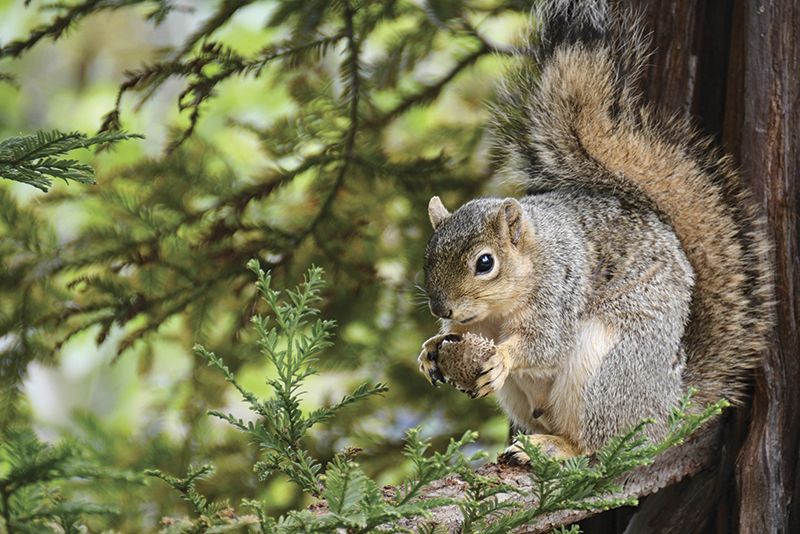Studying the Environment and More – A Gen-Z Perspective on Why Environmental Sciences
A view of a squirrel in its natural habitat, at the UC Davis Arboretum and Public Garden.
Two years ago, I was staring at blank Google Docs and long lists of possible majors, contemplating my career choices and confused about what I wanted to do in college. Never being fully absorbed and drawn into a singular field, I always felt like I wanted to learn parts of everything there was to know and make the most out of my education. This led me to what I am studying today: Environmental Science at UC Davis. If there was anything I knew that I wanted in my senior year, it was to choose a career that would create positive differences in the lives of people throughout the world while focusing on a relevant and urgent matter.
At the initial stage, when I explored the environmental sciences, I was unsure of what it had to offer, simply because of how many different aspects of this study were revealed to me. From climate policy and natural resource management to geographic information systems and biogeochemistry, all of these fields were completely new to me. A sense of disappointment hit as I realized that more niche fields were never talked about within my friend and family circles at home.
In a world where everyone seemed to be going into popular fields such as computer science, biology, or business and law, many questioned what jobs would be available to me with a degree in Environmental Science. Little did they know that environmental science encompasses all these popular fields.
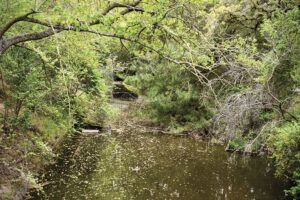
Making the most of my experience as a second-year undergraduate at UC Davis, I’m making the most out of the resources offered to learn about the depths of these niche fields. If I’ve learned anything so far, it’s that the environmental science community is super compassionate, and focused on studying climate change and sustainability. They have some of the biggest hearts that are prepared to drive positive change in the world.
Being an interdisciplinary study, Environmental Science requires coursework and professors who are willing to combine their expertise and research to teach a student body. In one of my current classes, there is a heavy emphasis on bridging the gap between scientific data and policymaking. Time and time again, we have seen these two aspects often fail to work together. Essentially, the data that is produced in experiments is often difficult to translate into policymaking and politicians tend to have their own agendas for re-election. As an environmental student, I believe this goal is important to consider in any of the work I plan to do in the future, whether it is policy-related or not.
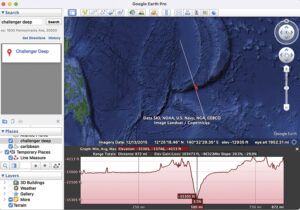
An emphasis that I find intriguing in particular is the data science/geographic information systems (GIS) track under my major. Always been fascinated by maps, I would peruse a massive atlas before going to sleep, as a young girl. This later transformed into utilizing applications like Google Earth and Maps to take a deeper look at all corners of the globe from the comfort of my own bedroom. Coding experience, data visualization, and GIS are widely used throughout various environmental studies. In a recent conversation with a professor conducting such studies, she showed how remote sensing and GIS were utilized to study vegetation patterns and predict how a certain land will react to environmental events. It goes without saying that data is a crucial component of any experiment or product. The possibilities are endless with GIS and environmental studies. Economic and development factors can be a major aspect of these geographic studies. This newfound knowledge drove the excitement to get my hands on these mapping tools and express the inner map-loving child in me.
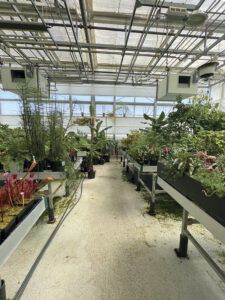
On a grassroots level, I am working in elementary school classrooms throughout the city of Davis to provide environmental and sustainability education through a program called Sprout Up. It’s important to get the young generation passionate and educated on these important topics, as they are the future of the planet and influencers of change in our society. In this program, I go into classrooms with my peers and demonstrate important scientific topics, such as the water cycle, recycling, planting trees, and more sustainability-driven subjects. The rewarding feeling of working with a small group of students and witnessing their individual growth throughout your time with them makes the mission worth it. With the admiration that these young students look at us with, there is a sense of responsibility to make a positive impact in every classroom I step in. From this experience, the positive impact I make in the lives of these children will continue towards my future and the workspaces I choose to be in, later in my career.
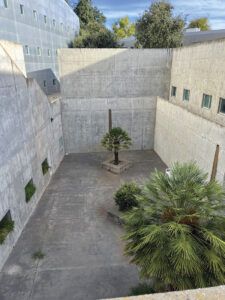
My experience with environmental science at UC Davis so far has been one filled with many mind-openers. I feel honored to be able to study a wide range of topics, from fundamentals like calculus and chemistry to unique subjects like sustainable environmental design and environmental analysis. As a student who has only just started their second year, it is inevitable that I have many projects and ideas that I want to explore further. One thing for certain is that I will continue to be passionate about the work that I do, make connections with students and faculty from all backgrounds, and strive to do work that makes a positive difference in our communities.
To future college students: If you are confused about your future and your major, do not be afraid to explore your options and make the most out of whichever higher-education experience you end up choosing. Always know that the opportunities unravel themselves as you meet new people and try new things.
